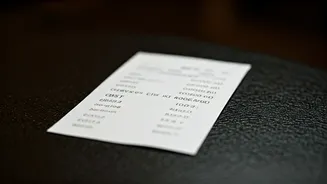Understanding Forgiveness' Power
BK Shivani emphasizes that forgiveness is not merely about condoning someone else's actions; it's a profound act of self-liberation. She posits that holding
onto grudges and resentment has a detrimental effect, creating a cycle of negativity within oneself. These emotions, according to her, are like toxins that poison the mind and spirit, preventing individuals from experiencing true peace and happiness. Forgiveness, therefore, is the antidote. It breaks the chains of anger and bitterness, allowing individuals to reclaim their inner freedom. It's a journey of self-discovery, leading to a state of mental clarity and emotional resilience. Shivani suggests that by letting go of past hurts, individuals can open the door to a more positive and fulfilling life. The act of forgiving, she explains, is essentially a gift to oneself, allowing for emotional healing and personal growth.
The Process of Letting Go
Shivani provides a practical framework for the process of forgiveness. The initial step, she suggests, involves acknowledging the hurt and allowing oneself to feel the emotions associated with it. Repressing these feelings only prolongs the suffering. Once the feelings are acknowledged, individuals can begin to detach from the situation. This involves recognizing that dwelling on the past will not change it and making a conscious choice to release the emotional hold it has. A crucial aspect of this detachment is understanding that everyone is acting from their level of consciousness. Thus, judging the other person may not be the answer. Instead, she advocates for compassion, seeking to understand the other's perspective, without necessarily excusing their actions. The process also includes a sincere intention to forgive, a genuine desire to move forward, and a willingness to learn from the experience. This journey is gradual, and it may require time, patience, and a steadfast commitment to the practice of forgiveness.
Cultivating Inner Peace
According to Shivani, forgiveness is intrinsically linked to inner peace. When individuals release the burdens of resentment, they create space for positive emotions such as love, compassion, and joy. This shift fosters a sense of tranquility and contentment. Inner peace, she argues, is not the absence of problems, but the ability to navigate them with grace and equanimity. It is a state of mental resilience that enables individuals to cope with life's challenges without losing their emotional balance. This state also brings about improved mental and physical health, leading to greater overall well-being. By actively practicing forgiveness, individuals can cultivate a mindset of positivity, resilience, and compassion, which subsequently allows them to experience a deeper and more lasting sense of peace. This inner peace radiates outward, influencing relationships and interactions with the world.
Practical Applications of Forgiveness
BK Shivani offers practical ways to apply forgiveness in daily life. One key strategy involves reframing the negative thoughts that often arise when someone has been wronged. Instead of allowing anger or resentment to fester, she suggests replacing these thoughts with more compassionate and understanding ones. This could mean reminding oneself that everyone makes mistakes or seeking to understand the motivations behind another person's actions. Another useful technique is to practice empathy, trying to see the situation from the other person's perspective. Writing a letter (which does not have to be sent) can also be a helpful way to express feelings and let go of the emotional burden. Consistent meditation and mindfulness practices further aid in cultivating a sense of calm and clarity, which makes the act of forgiveness easier. By incorporating these practices into everyday life, individuals can create a more forgiving mindset and improve their overall well-being.
The Impact on Relationships
Forgiveness also holds significant importance in enhancing relationships. According to Shivani, when individuals are able to forgive, they create a space for healing and rebuilding trust with others. This enables the fostering of stronger, more fulfilling connections. Holding onto grudges can destroy relationships, while forgiveness acts as a bridge to overcome conflict and resolve misunderstandings. It enables open communication, honesty, and empathy, thus creating a more positive and supportive environment. When individuals can forgive, they also become more resilient in the face of conflict and better equipped to navigate the inevitable challenges that arise in any relationship. This leads to deeper bonds built on mutual respect, understanding, and love. The ability to forgive not only benefits the person doing the forgiving but also fosters a culture of compassion and understanding within families, communities, and society at large.














